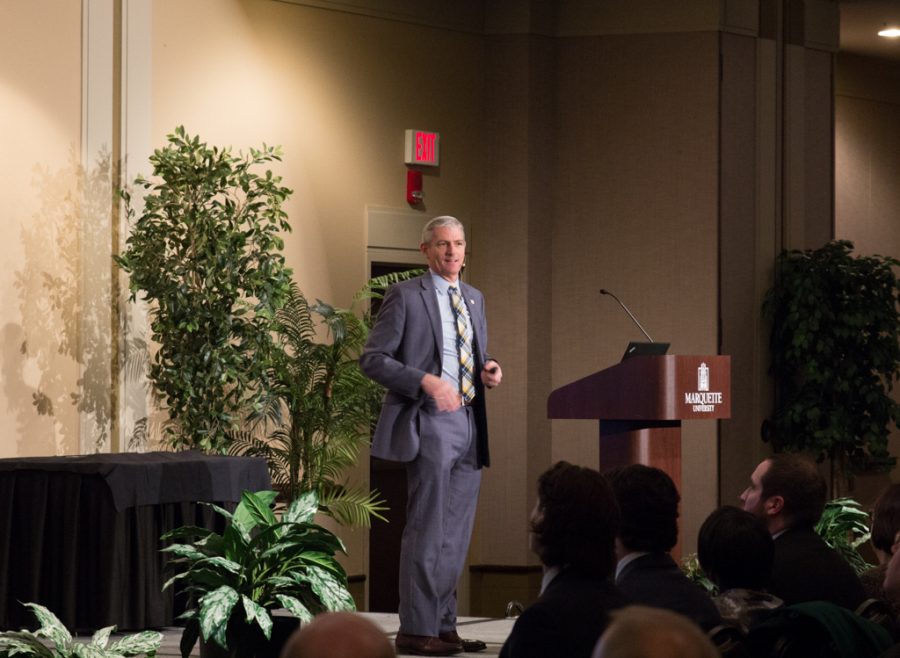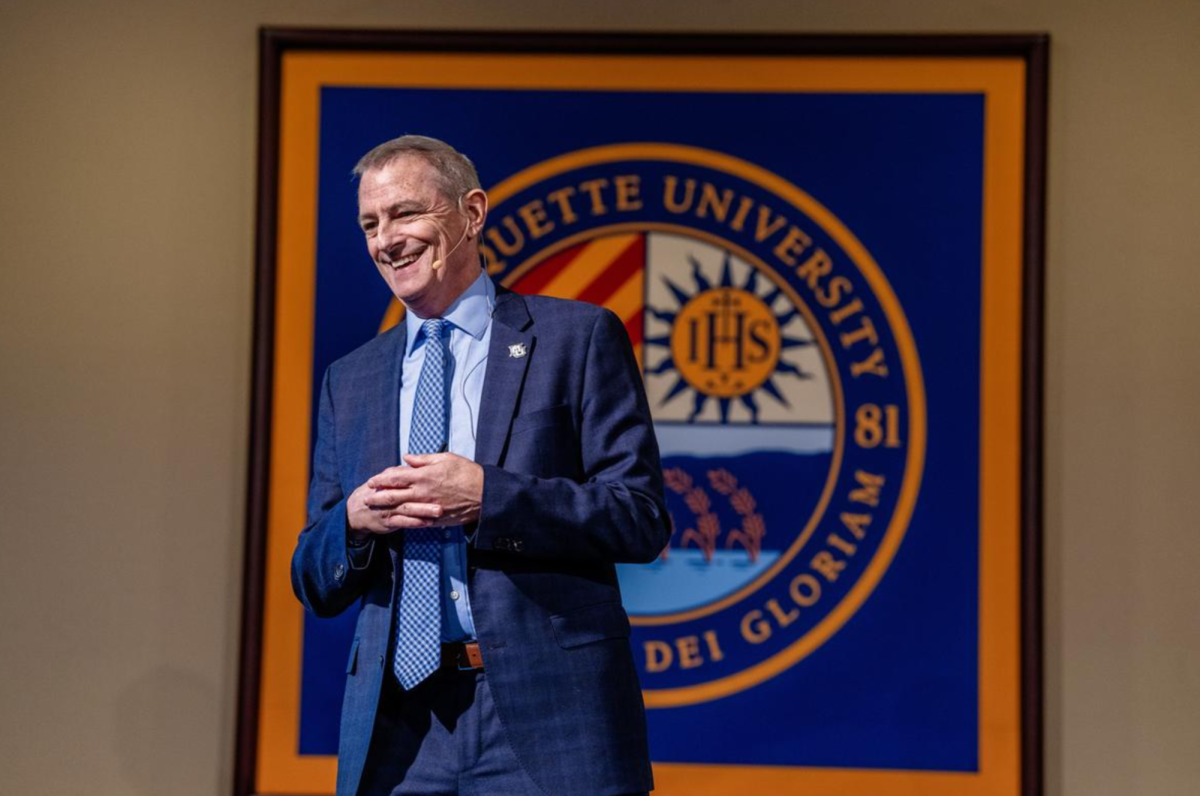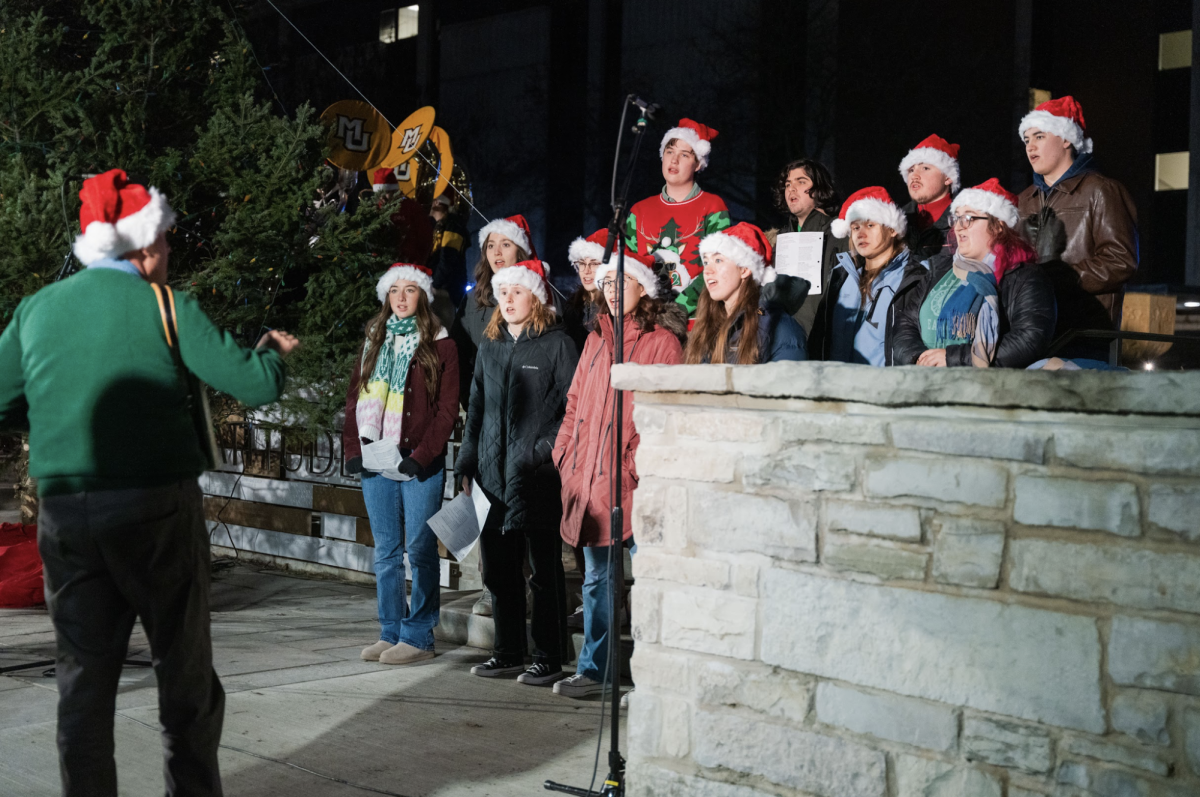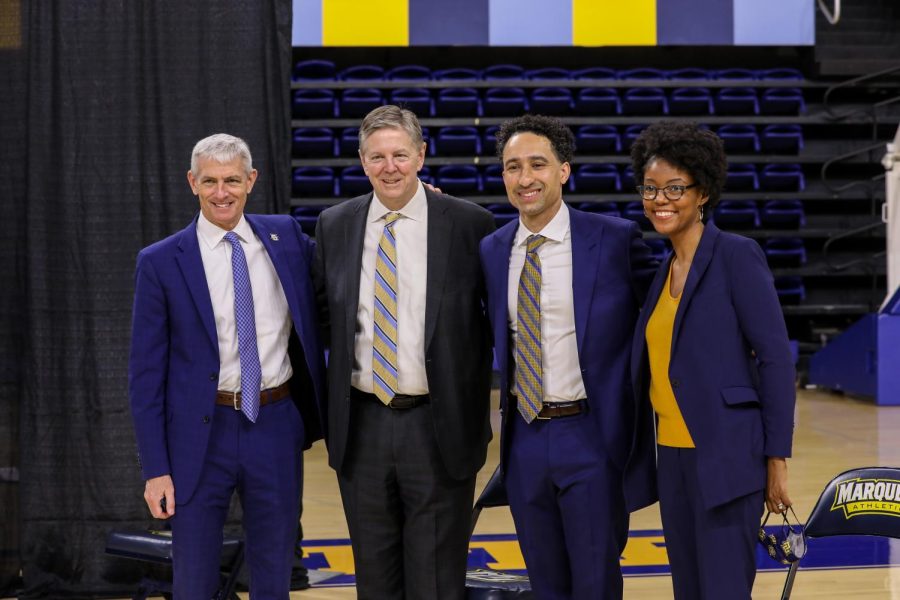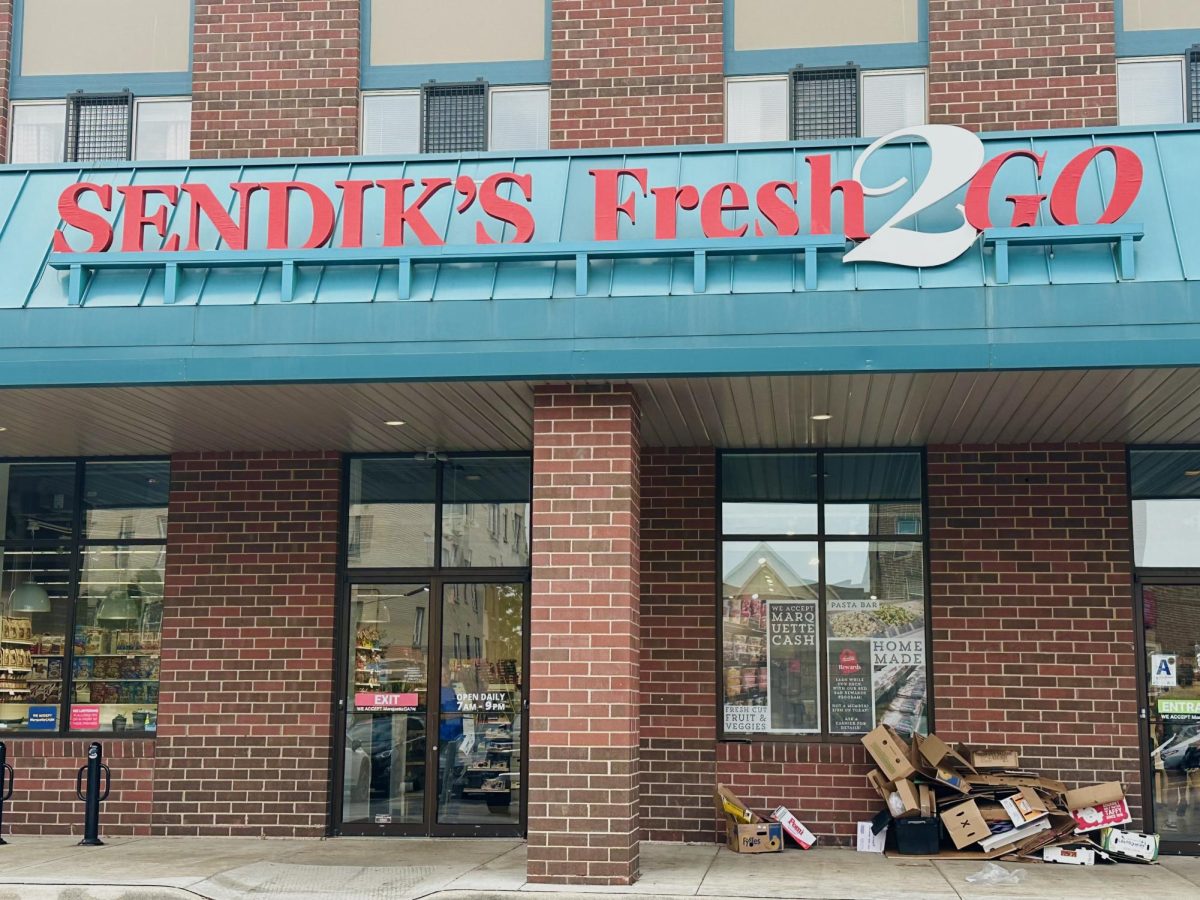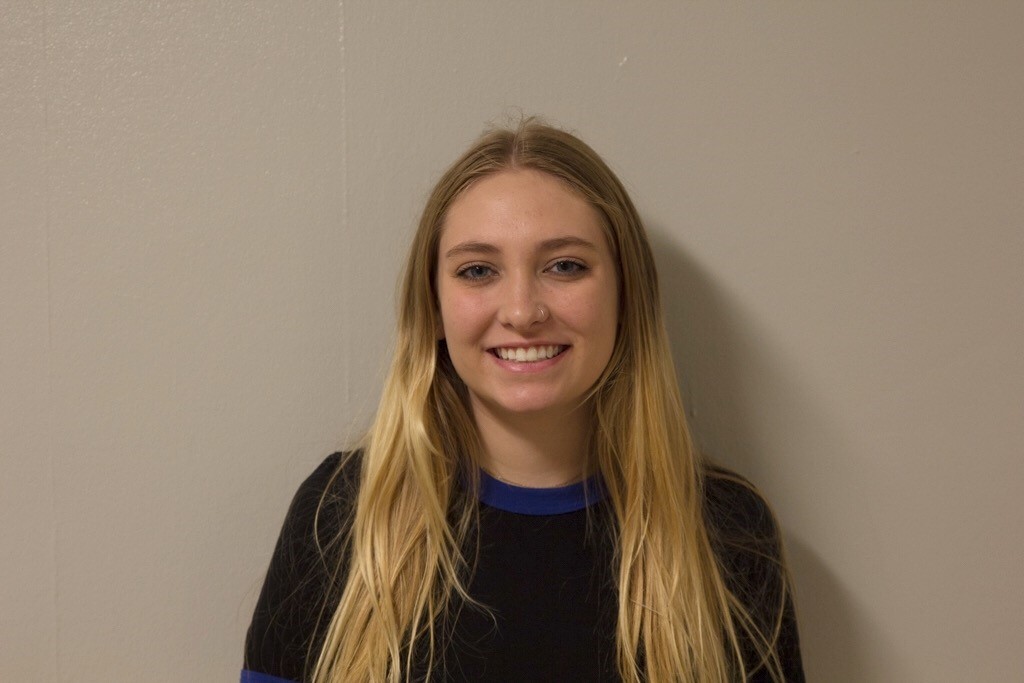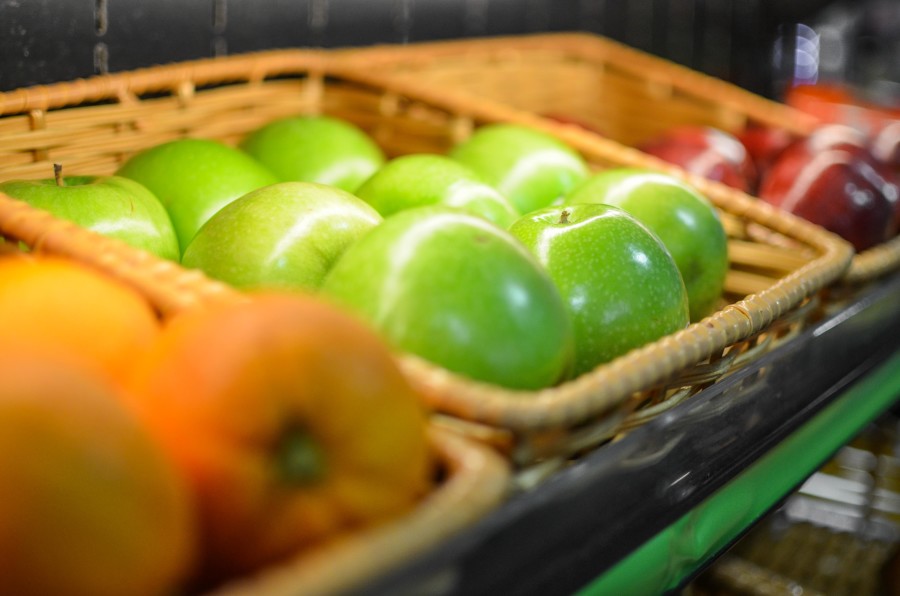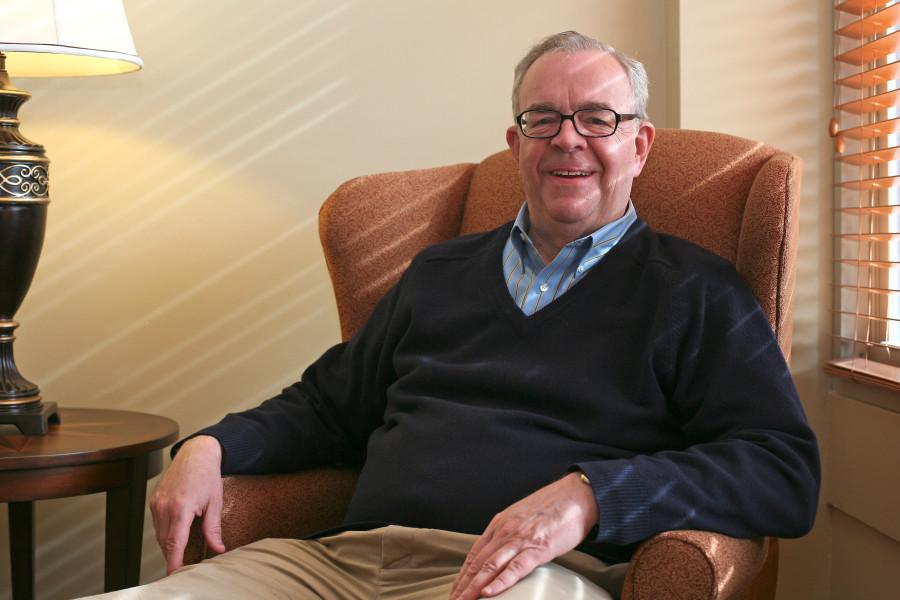In classic Lovell fashion, the university president had two major announcements for attendants of his third annual presidential address Wednesday, Jan. 18. One called for celebration; the other discussed an ongoing campus issue.
The most exciting news was that the freshman residence hall being constructed on 17th and Wells streets will be named after the Rev. Robert A. Wild, S.J., university president from 1996 to 2011 and fall 2013 to July 2014. For the building that thousands of future first-year students will one day call home, it is fitting to honor a man whose efforts improved our university tremendously.
Wild is often remembered as a fundraising whiz. Under him, Marquette received hundreds of millions of dollars in donations for student scholarships and major development projects that continue to benefit campus today, including the Al McGuire Center, Raynor Library, Engineering Hall and Eckstein Hall. During Wild’s presidency, university athletics joined the BIG EAST conference and undergraduate enrollment increased exponentially.
Wild’s 2015 honorary degree from Marquette calls him “a champion for increasing access.” Thanks to so many scholarship funds raised under him and a student body of more than 20 percent first-generation students, “his legacy is the students.” On Wednesday, Lovell called him a “beloved figure” here at Marquette, and we most certainly agree.
The legacy Wild has left on Marquette will affect generations of future students. Names like Victor McCormick, Walter Schroeder and Josephine Hallman Mashuda probably hold little meaning for us, but hopefully this new Wild residence hall will promote remembrance of and respect for a person who greatly helped make this university what it is today, especially for us who are living and learning here now.
Lovell’s other major announcement Wednesday addressed the lack of a grocery store on or near campus. Unfortunately, his introduction of the “Grocery Challenge” leaves students asking the same questions we have had for years and offers no concrete answers.
Lovell noted that this issue has been a major concern since the beginning of his presidency in 2014, and the Marquette community has expressed frustrations about it for years. In fact, a 2009 Marquette Tribune staff editorial said that according to Alderman Robert Bauman, there hadn’t been a grocery store on or within a mile of campus for 25 years, and then-assistant to the vice president in the Office of Administration Mike Whittow said it had been the number one request from the campus community for the past 10 years.
During Lovell’s speech, he appeared dedicated to and hopeful about finding “a fresh food access solution” through this initiative in the coming months, but vague phrases like “soliciting ideas” and “pilot programs” made it clear that this big announcement really tells us nothing new. It’s still uncertain exactly how the university will solve this problem.
Marquette is not unique in its need of a reasonably priced fresh food source. In recent years, UW-Madison and University of Minnesota have had similar struggles, with a common complaint being that expensive but convenient corner stores – like our own Walgreens and 7-Eleven – need competition.
What is unique, however, to the food desert surrounding Marquette, is that it also surrounds an extremely impoverished neighborhood. Like us students, many of our neighbors lack access to a vehicle that makes grocery shopping easy. With the nearest Pick ‘n Save closing last semester, those without cars are forced to walk to Walgreens or 7-Eleven. Furthermore, many of those in our community rely on food stamps to feed their families. Walgreens and 7-Eleven accept SNAP, Supplemental Nutrition Assistance Program, more commonly known as food stamps, but neither store provides adequate options for feeding a family, never mind a college student.
This university has real power to improve, develop and help this area of the city, and it is our mission as a Jesuit school to bring a fresh food source here, not as a campus amenity but as a staple of the wider community. Our neighborhood needs this, and students deserve it as well.
The university should immediately enact short term solutions to help students, like starting a LIMO service to Metro Market or revamping the MUSG-sponsored fresh food basket program. But the real “Grocery Challenge” Marquette faces is to rid our neighborhood of the food desert label it has had for years. Hopefully, those working on the initiative will keep this ultimate goal in mind and start making decisions and changes as soon as possible.

